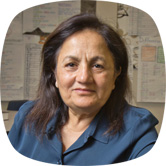
Exec. Director & Co-Founder Read bio
Neeru Khosla
Neeru Khosla is the Co-Founder and Executive Director of CK-12 Foundation, a not-for-profit organization advancing K-12 STEM education by leveraging the power of AI and open multi-modal content. CK-12 Foundation’s AI-powered Student Tutor, Teacher Assistant, and Open Content is removing the barrier of access and equity by providing the best content delivered by cutting-edge technology, free for all. CK-12 has served over 218M+ users worldwide.
Mrs. Khosla in the past has served as a member on several advisory boards, including The Nueva School’s Board of Trustees, the Board of Directors for High Tech High School’s Graduate School of Education, the Advisory Board for Stanford University’s School of Education, and the Advisory Board for IDEO.org, a member on the Advisory Board for the Wikimedia Foundation, the Advisory Board for DonorsChoose.org, and is one of the founding members of the K-12 Initiative of the Design School (Hasso Plattner Institute of Design) at Stanford University.
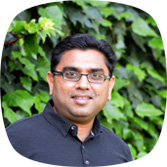
Chief Technology & Product Officer Read bio
Miral Shah
Miral joins us from McGraw-Hill Higher Education (MHHE). In his most recent role at MHHE, Miral served as VP of Technology. In this capacity, Miral was responsible for all of MHHE’s digital platforms including McGraw-Hill ‘Connect’ and McGraw-Hill ‘Create’.
Miral started his career at MHHE in the software development team. Miral served as a chief architect and led a geographically distributed team of software engineers to create McGraw-Hill’s “Connect” platform. After successfully launching the Connect platform, Miral moved on to head Digital products group for MHHE’s Business & Economics (B&E) group. At B&E, Miral worked with internal teams (Editorial, Marketing, Sales, Production) and customers (Instructor, Students and Institutions) to drive innovative and pedagogically superior digital products and services.
Prior to McGraw-Hill, Miral worked for a silicon valley based company called eBusiness Design (eBD) for five years. During his tenure at eBD, Miral and his team closely worked with Pearson Education to build their course management and learning management platform for their K-12 market. Miral has more than 12 years of experience driving digital products and technology platforms for the Education industry (K-12 and Higher Education).
Miral is very passionate about education, technology and its combination.
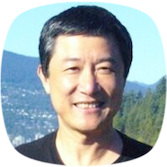
Chief AI Advisor Read bio
Li Deng
Li Deng was the Chief Artificial Intelligence Officer of Citadel since May 2017. Prior to Citadel, he was the Chief Scientist of AI, the founder of Deep Learning Technology Center, and Partner Research Manager at Microsoft. Prior to Microsoft, he was a tenured full professor at the University of Waterloo in Ontario, Canada as well as teaching and conducting research at MIT (Cambridge), ATR (Kyoto, Japan) and HKUST (Hong Kong). He is a Fellow of the IEEE, a Fellow of the Acoustical Society of Amer.
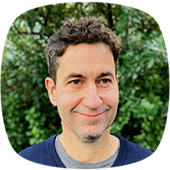
Chief Commercial Operations Officer
Read bio
Stephen Jull
Stephen’s career began as a teacher in the wilderness of northern Canada, followed by a PhD in Education at the University of Cambridge as a Commonwealth Trust Scholar. He has held academic posts in Canada and the UK, consulting academic, government and enterprise partners to deliver improved learning outcomes through technology, operational transformation and effective pedagogy. Stephen joined CK-12 following 7 years as the Chief Operating and Financial Officer of GeoGebra, helping to transition GeoGebra to a global STEM software company serving a community of over 100M across 190+ countries. When not hanging out at CK-12, Stephen can usually be found chasing his kids around the garden or heading out on a family adventure.
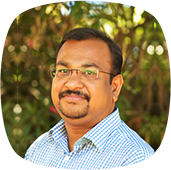
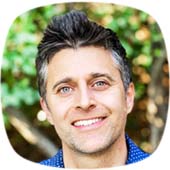
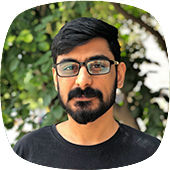
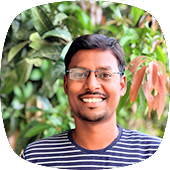
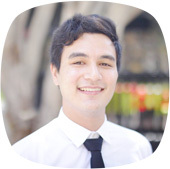
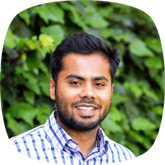
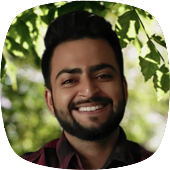
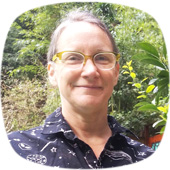
(AI Products)
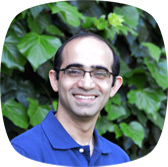
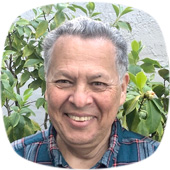

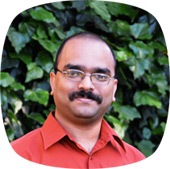
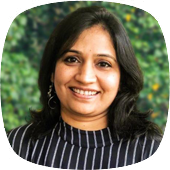
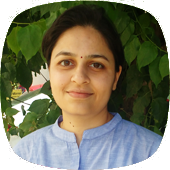
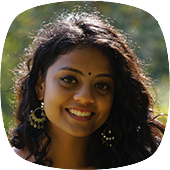
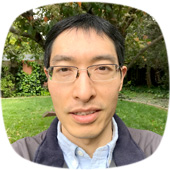
(Machine Learning)
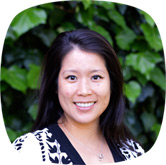
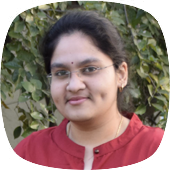
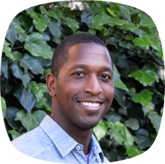

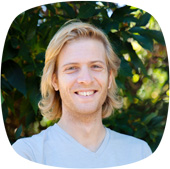
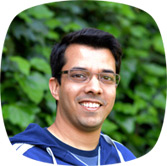

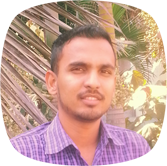
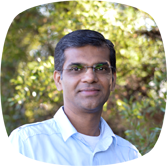
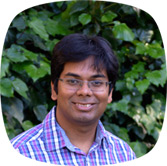
(Machine Learning)
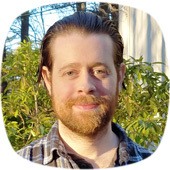
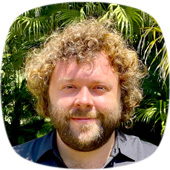
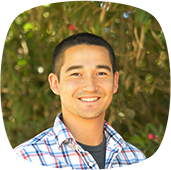
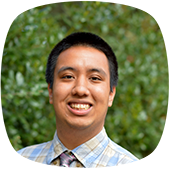
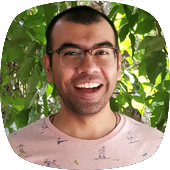
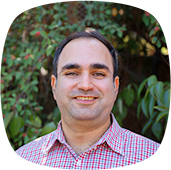
(Machine Learning)
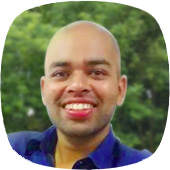
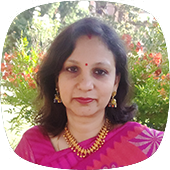
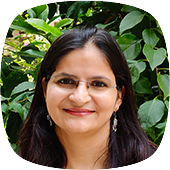
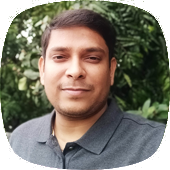
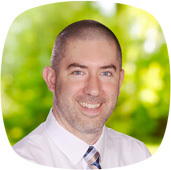
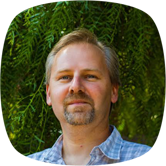
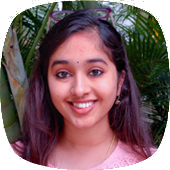
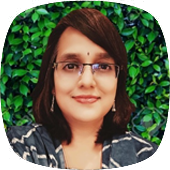
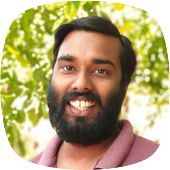
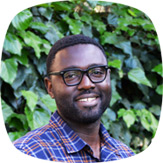
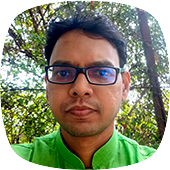
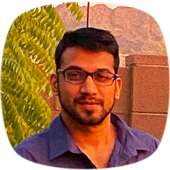
(Machine Learning)
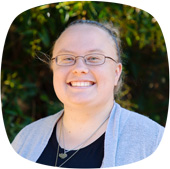
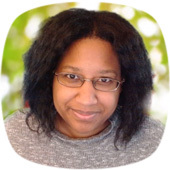

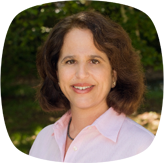
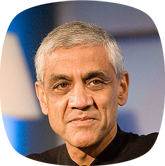

Mrs. Khosla in the past has served as a member on several advisory boards, including The Nueva School’s Board of Trustees, the Board of Directors for High Tech High School’s Graduate School of Education, the Advisory Board for Stanford University’s School of Education, and the Advisory Board for IDEO.org, a member on the Advisory Board for the Wikimedia Foundation, the Advisory Board for DonorsChoose.org, and is one of the founding members of the K-12 Initiative of the Design School (Hasso Plattner Institute of Design) at Stanford University.
Math
Andrea is a graduate of Western Michigan University and Marygrove College. She currently teaches high school math and English at Maple Valley High School in Vermontville, MI. She also teaches online math courses for Michigan Virtual School and Axia College. She resides in Grand Ledge, MI, with her husband and son.
Andrew John Gloag was born in the North East of England and graduated from Oxford University in 1992 with a Bachelors degree in Physics. He obtained his PhD from Strathclyde University, Scotland in 1996 and worked in fiber-optics research until he moved to San Diego, California in 1999. He currently teaches physics and mathematics at High Tech High School in San Diego.
Anne Marie Gloag was born in Bucharest, Romania and moved to the US when she was 14. She graduated Old Dominion University with a major in applied mathematics and obtained a PhD in applied mathematics from Northwestern University in 1996. After working in the UK for 2 years, she moved to San Diego, California. She has been teaching mathematics and chemistry at High Tech High for 7 years.
Thirty-one years teaching mathematics and physics – mostly at high school level but also at community college and university level. Currently teaching mathematics at Southern Oregon University. Created and led workshops for mathematics and physics teachers and wrote a manual for the American Association of Physics Teacher- The Role of Mathematics in the Teaching of Physics. Was a member of a team of teachers who developed the Comprehensive Conceptual Curriculum for Physics DVD, funded by NSF.
Ashley holds a Bachelor of Science in Mathematics and a Master of Arts in Teaching with a Secondary Mathematics Education emphasis from Wheaton College, a Master of Science in Computational Mathematics from Marquette University, and a Doctorate of Philosophy in Mathematics Education from the University of Georgia with an emphasis on the teaching and learning of abstract algebra. In addition, she has been teaching collegiate mathematics for over a decade.
Benjamin Moynihan studied at Dartmouth, the Conservatoire National De Musique in Dakar, Senegal, and the Harvard University Graduate School of Education. He seeks to build alliances across multiracial and multigenerational boundaries through education, and developed the African Drums & Ratios Curriculum with Robert P. Moses, John Belcher and a team at the Algebra Project. This is the first in a series of Algebra Project modules to be shared on the CK-12 web site.
Bernice Virginia Campbell, Ph.D.
Bernice is originally from Richmond, VA but grew up in Rocky Mount, NC. She earned bachelors and Master’s degrees in Mathematics Education from North Carolina State University and Wake Forest University respectively. She has a Ph.D. in Educational Research and Policy Analysis from North Carolina State University. Bernice has over 20 years of experience in K-12 and higher education as a teacher/instructor, program coordinator, and project manager. She is currently the Director of Institutional Assessment and Planning at Durham Technical Community College in Durham, NC.
I am currently a doctoral candidate in mathematics education at the University of California, Santa Cruz. My research focuses on the ways students learn algebra through peer discussions, and the interactions between learning mathematics and learning language, with a special emphasis on understanding the mathematics learning of Latino English Learners. Prior to my exciting life as a graduate student, I taught high school math for six years–three years at Bellarmine College Preparatory in San Jose, and three years at Saramen Chuuk Academy in Chuuk, Federated States of Micronesia. While teaching in Chuuk, I first encountered the problem of finding appropriate and affordable texts for my students–and at that time I took the “do it yourself” approach and wrote an entire book based on my class notes. One of my hopes is that our CK12 books can be a resource for schools like the one I taught at in Chuuk. As an undergraduate I studied mathematics and computer science at Boston College, and I also worked with Jerry Keough and C.K. Cheung on the development of several texts for introducing Mathematica and Maple, and doing calculus with Mathematica. Beyond the world of mathematics texts, I am an avid cyclist, and an Oakland A’s fan.
Brenda Meery is a retired teacher of the Cape Breton Victoria Regional School Board. Her career has included positions in elementary and secondary schools. As well, Mrs. Meery has worked at the Department of Education on many projects in mathematics. Over the past 35 years in education, her career has provided her with many experiences including those listed below. These experiences have been the direct result of mobility and opportunity within the teaching profession. Each experience has provided her with valuable knowledge which she has used to enhance her teaching career.
Brianne Megerdichian earned her teaching credential from California State University, Northridge in 2001. Brianne is currently working as a K-8 science teacher in San Diego, but has also taught middle school math and 5th grade. She has spent most of her teaching career working with second language learners and students with special needs. Brianne believes that a good curriculum is challenging, hands-on, has ties to the real world, and meets the needs of a diverse population of learners. In addition to writing for ck12.org, Brianne has also written for Kaplan, Inc.
Dr. Carol Findell is a Visiting Scholar at Arizona State University until May 2009, and then returns to Boston University as Associate Professor of mathematics education. Her focus is on problem solving, mathematics for special needs students, and making connections between college-level mathematics and the elementary, middle, and high school mathematics curriculum. She was author or co-author of national middle school Mathcounts competition questions and of many math books for students in grades PreK-7.
Carole Greenes is Associate Vice Provost for Science, Technology, Engineering and Mathematics (STEM) Initiatives at Arizona State University, Professor of Mathematics Education, and Director of the Practice, Research and Innovation in Mathematics Center. Greenes is author of more than 70 articles and 300 programs and books in mathematics, three mathematical musical mysteries and one musical history of mathematics. Greenes is Principal Investigator of the NSF-funded, Prime the Pipeline Project: Putting Knowledge to Work.
Colleen O’Donnell Oppenzato has worked in the field of educational publishing since 1999, developing mathematics curricula for grades 2-11. Before that, Colleen participated in Teach for America and worked as a teacher of exceptional children at the middle school level. She has also worked as a fifth-grade teacher. She is currently completing a master’s degree in Cognitive Studies in Education at Teachers College, Columbia University.
Dan Greenberg is author of 20 books for Scholastic Professional Books including Fabulous Fractions and Comic Strip Math, both of which have sold over 75,000 copies. Dan is currently working on True Tales of Deep Irony and Petty Vindication, a cartoon series that he hopes to turn into a book.
Daniel is an instructional designer for Code Next, a Google education program providing curricular pathways to computer science for black and Latino youth. He is also an ambassador for the Global Math Project, which aims to create meaningful and joyful math experiences for students and teachers. Previously, he taught math at Madison Public Schools and Summit Public Schools and was a lead instructor for SMASH Academy. Daniel resides in Madison, Wisconsin.
Debbie currently teaches mathematics (Algebra to Calculus) at Foothill College. She taught middle school math with the San Francisco Unified School District and received her Master’s in Mathematics and teaching credential from San Francisco State University.
Ellen currently lives in Belgium, Brussels where she has been since 2001. Until 2008 she worked at the International School of Brussels as Head of the High School and as a teacher of AP Statistics and IB Math Standard Level. She has also taught high school mathematics at Sandy Spring Friends School and at Sidwell Friends School in Washington, D.C. At the college level, Ellen has taught statistics at California State University Sacramento and at George Washington University in Washington, D.C. She has worked as a mathematical statistician for the Internal Revenue Service. Ellen has a Master’s degree in mathematical statistics from the University of California at Davis and all but a dissertation (ABD) in mathematical statistics from George Washington University in Washington, DC. Ellen has worked for CK-12 since 2008 as a reviewer and author. In addition to this work she teaches a semester course, Statistics for Lawyers, at the University of California at Irvine School of Law and is an IB Examiner for Mathematics Standard Level.
Dr. George Collison is a nationally known science and mathematics educator. He is one of the founders of the Virtual High School(tm) and lead author of the Seeing Math(tm) video case studies distributed by PBS Teacherline. He has authored courses in algebra, calculus, and physics. George was invited by USAID on several occasions to help science and mathematics planning and write curricula in Africa. His passion lies in crafting clear, highly engaging presentations that build careful bridges from concrete experiences to abstract concepts.
Having taught high school mathematics for 14 years, Harold eventually left the classroom to work as a math writer. He is a published textbook author and has developed curricula for major school districts. Harold currently works as a math content specialist from his home in Oregon.
Helen Scully was born in 1977 and received her degree from Brown University. She has long been committed to creating quality, imaginative education content. Her novel, In the Hope of Rising Again, was published in 2004.
Jared Prolo has used both his Music Education and Math degree from Loyola University New Orleans for teaching all levels, from Kindergarten music classes in New Orleans to Calculus at UC Santa Cruz. His major instruments are bassoon and saxophone, and he is a mountain bike team coach as well as a road and track cycling racer. Jared believes the best lessons always happen outside the constraints of the classroom and wants his students to create, build, measure, destroy and experience creations to learn math and science.
Jen Kershaw has a B.A. in Theater from The University of South Florida, a Master’s of Science in Education from Wheelock College in Boston, Massachusetts and a Waldorf Teaching Certification from Antioch University. Ms. Kershaw began her teaching in residential programs with emotionally disturbed adolescents. It was there that she fell in love with mathematics and made it her mission to become an innovative, creative math teacher. She received an Excellence in Education Award in 1999 for mathematics and has twelve years of classroom teaching experience, six of which are in the area of middle school mathematics. Ms. Kershaw published her first entire curriculum unit titled, “The Great Equation Race” with Interact, Inc. in 2006. In 2009, Ms. Kershaw began working with CK-12 Foundation first as an editor, then as a domain expert. She currently works for CK-12 as a writer, editor, and domain expert.
Jim taught secondary math from the East Coast to Hawaii and back to West Virginia. He worked with teachers and students from kindergarten through high school as a math/science specialist. Jim also spent several years creating and managing statewide math testing programs. Along the way Jim published many articles in math and science teacher journals, and he edited secondary math textbooks. Jim has a special interest in hands-on and project-based math learning.
Kaitlyn Spong has worked on numerous math projects for CK-12 since June of 2008. Kaitlyn earned a B.S. in Mathematics with high honors from Haverford College in 2007 and an M.A. in Teaching Mathematics from Stanford University in 2008. Kaitlyn taught math at the high school level for four years before recently moving to the community college level.
Kaitlyn is passionate about improving mathematics education and helping students to find success and joy in math. In the past year Kaitlyn pursued National Board Certification for Mathematics and mentored student teachers from Stanford University. She has also attended the Park City Mathematics Institute where she collaborated with other math educators from around the country. Kaitlyn is thrilled to be working with CK-12 to offer free, high quality educational content.
Kate Dirga has a BA in Mathematics from West Virginia University and a Master’s in Secondary Mathematics Education from Virginia Tech. She holds National Board Certification and is currently teaching at Robinson Secondary School in Fairfax County, VA. Previously she taught for 13 years at George Mason HS in Falls Church City, VA. She’s currently co-authoring CK-12’s Algebra II with Trigonometry.
Kathy Kehrli is a professional writer and editor with an emphasis in math educational content. She possesses extensive experience in creating mathematics activities, exercises and assessments as well as standardized test questions. She also regularly edits and fact checks mathematical material. Her specialty levels are middle grade and high school, with a personal preference for Algebra topics. She possesses a Bachelor’s degree magna cum laude in mathematics with a secondary degree in French. She is currently pursuing an MFA degree in creative nonfiction on a part-time basis. She has been collaborating with CK-12 since March 2011.
Author, editor, and video instructor/producer Larame Spence initially became familiar with CK-12 curriculum as a mathematics instructor at Desiderata Schools, and has been a very happy member of the CK-12 Mathematics team since 2010. Larame has over 20 years of experience in mathematics and science (Physics) instruction at the middle school, high school, and college levels, and has served as Director of Programs at Desiderata Schools since 2000. Larame’s CK-12 projects include over 600 instructional videos in mathematics, and the authoring and/or editing of: Math 6, Math 7, and Math Analysis Concepts Collections.
Liza Cope is an Assistant Professor of Mathematics and the Secondary Mathematics Education Program Coordinator at Delta State University in Cleveland, Mississippi. Her research focuses on the beliefs, practices, and tools that contribute to mathematics teacher effectiveness and large-scale data analysis. Her hobbies include crocheting and running.
Lori graduated from UCLA in 2001 with a BS in Mathematics and in 2002 earned her Master’s in Education and teaching credential. Also in 2002, she began teaching mathematics at the high school level. She has taught in Los Angeles, Washington DC, and Santa Barbara and has taught Algebra I, Geometry, Honors Geometry, Algebra II, Honors Algebra II with Trigonometry, Statistics and Pre-Calculus. In 2007, she left teaching to become a stay-at-home mom. In 2008, Lori realized that she missed teaching, primarily curriculum development, and joined the CK-12 staff. Since then, she has edited the Trigonometry, Statistics, and Geometry texts and authored the Teacher Edition of Geometry. She is currently working on the first edition of the Algebra II with Trigonometry text.
Louise Jarvis graduated from Mary Washington College (now University of Mary Washington) in 1987 with a double major of Mathematics and Sociology. She earned her MS in mathematics from the University of Rhode Island in 1989. She taught college-level math classes for 10 years and has worked with all levels of mathematics. She has been a writer for the math educational industry for several years. She also home educates her children in all subjects.
Lydia is an Assistant Professor of Mathematics at Dominican College in Orangeburg, NY. She earned a BS in Mathematics and an MA in Education from Virginia Tech and a PhD in Mathematics Education from Teachers College, Columbia University. She worked as an adjunct professor at John Jay College of Criminal Justice and the Fashion Institute of Technology as she worked on her doctorate. Her passion is to help students who have previously been unsuccessful in math classrooms realize that grit and hard work are more important than innate ability and that they can be successful mathematics students.
Mara Landers holds a B.A. in mathematics from Swarthmore College, and an M.A. and PhD in mathematics education from the University of California, Berkeley. Dr. Landers has worked as a mathematics educator since 1997, including teaching, tutoring, educational research, and curriculum and assessment development. Dr. Landers is currently an assistant professor of mathematics at Los Medanos College in Pittsburg, CA.
Maria Catalina teaches mathematics and science at Mar Vista Middle School in the Sweetwater Union High School District. She began researching curriculum in 1995. As the worlds first Teacher to Space Ambassador she turns “Eyes to the Skies” and brings Space down to Earth. Space travel and the universe drive her standards based curriculum as she introduces her students to their technological futures. Miss Catalina knows that our students are the first space faring generation.
Mark Spong is a contributing author for CK-12. Mark earned a B.A. in Mathematics from Harvard College in 2008, an M.A. in Education from Stanford University in 2008, and an M.S. in Mathematics from the University of Connecticut in 2013. Mark taught math at the high school level for four years before returning to graduate school. He is currently an actuary. While teaching high school, Mark was a Knowles Science and Math Teaching Fellow and was featured on local radio and television for innovative teaching practices. He is passionate about using data effectively to inform teaching and has published and presented on his use of “Data Driven Instruction.” Mark is proud that more people will have access to free, high quality educational content through CK-12.
Mary Cavanagh is Executive Director of Center for Practice, Research and Innovation in Mathematics Education (PRIME Center) at Arizona State University. She is the author/co-author of K-8 five mathematics textbook series, teachers’ editions, handbooks, resource books, ancillaries, monographs, and articles in math, science and language arts. She has taught all of the elementary grades as a classroom teacher and mathematics specialist, developed curriculum and has conducted professional development programs throughout the United States and Germany.
Melissa Kramer is a mathematics teacher for Laingsburg High School located in Laingsburg, Michigan. She earned an undergraduate degree in Secondary Mathematics Education (Eastern Michigan Universtity) and a master degree in Educational Administration (University of Michigan). Her current endeavor is to earn her certification to teach secondary English.
In addition to her role as an educator, she has the accomplishment of leading her mathematics department, school improvement team, attendance appeal board, and numerous other committees.
Melissa’s spare time is spent reading, gardening, hiking, and enjoying nature. Her most favorite pasttime is spending time with her husband, kindergarten son, and two cats.
Mr. Fauteux teaches Academic Numeracy and Geometry as a lead teacher at Leadership Public Schools- Hayward. Prior to joining LPS, he spent two years in Rome where he taught math and served as the school’s athletic director. He has also taught high school math at the Hong Kong International School in Hong Kong, and middle and high school math at the San Francisco French-American International School. He has spent the past 5 summers facilitating at Harvard’s Secondary School Redesign Institute, leading groups of superintendents, principals and teachers in rethinking their instructional program. Mr. Fauteux holds a B.A from Brown University and a Masters in Education from Harvard’s Graduate School of Education.
Mike taught mathematics and statistics at Andover High School in Bloomfield Hills, Michigan, for 34 years. He served as department chair and developed the Advanced Placement Statistics program there. He left Andover for a position as a Senior Instructor at the University of Michigan-Dearborn, where he taught Calculus, Statistics, Discrete Mathematics, and Precalculus, and directed the Developmental Mathematics program for the University. He now enjoys life in the Asheville area of Western North Carolina, where he continues to work as an occasional tutor and textbook editor/evaluator.
Monique Taylor earned her Ph.D. in Mathematics from North Carolina State University. She has taught on a college level full time for 8 years. Outside of teaching mathematics with enthusiasm, she enjoys cooking, hiking, and spending time with family.
Nate Seely is an experienced middle and high school mathematics (pre-algebra to calculus and statistics) and science (physics, chemistry) tutor in Menlo Park CA, who is knowledgeable about district curricula as well as CA and Common Core standards. Nate has over 30 years of technical, mathematics/physics intensive experience in the research, development and deployment of advanced satellite communications systems. Nate joined the CK-12 team in August 2012 at the urging of his daughter, a summer college intern, and is very excited to be part of CK-12’s mission to provide web-based, Open Source, standards-correlated, flexible educational materials to students and teachers.Nate holds a Bachelor’s degree in Electrical Engineering from MIT, and Master’s and Ph.D. degrees in Electrical Engineering from Stanford University.
Paula Evans has worked in mathematics and computer science education since 1981. She currently supports professional learning for STEM educators with the California Department of Education. She was the Mathematics and Computer Science Department chair at the Harvard-Westlake School from 2002 to 2016. She was also asked to serve as a content expert for the College Board Advanced Placement exams in Calculus and Computer Science.
My educational background includes a PhD in physics and a Master of Science in physics and mathematics. I have been teaching physics, mathematics and astronomy for over 20 years at several colleges and private schools in different states. I currently live with my wife and boy (3.5 years) in Alexandria, VA.
Ramesh is a teacher and educational technology developer for high school and college level mathematics. His current focus is on developing courses, software and interactive lessons which relate mathematics to topics in history, biology, social and environmental justice, the arts and international affairs for universities, educational organizations and distance learners. You can learn more about his educational projects at www.brainstormacademy.com
Ramesh holds an MS in Applied Mathematics from the University of Washington, an MS in Electrical Engineering from the Georgia Institute of Technology, both of which emphasized modelling complex biological systems in the brain and the ecosystem, and using software to teach mathematics. He received a BA in Engineering Sciences at Dartmouth College, where he focused on robotics and control theory.
If Ramesh could be anywhere right now, it would be in the mountains thinking about math (and taking pictures).
Randy Green is a freelance editor and writer of mathematics textbooks and ancillaries. She has a Bachelor of Arts in Mathematics from the State University of New York at Albany and a Master of Science in Education from Queens College. Randy started her editorial career at Holt, Rinehart, and Winston. She taught high school math before returning to a career as a freelance editor/writer. She specializes in editing and writing math books for grades 4 through 8.
Rebecca Gagliano has a Master’s degree in Curriculum and Instruction and a Bachelor’s degree in Mathematics and Science Education from Kansas University. She has over 18 years of experience both teaching and designing curriculum. Her latest project was to design a mathematics program and curriculum for the State University of New York Ulster.
Ms. Zapata teaches Geometry and Pre-Calculus as a lead teacher at Leadership Public Schools-Hayward. She is a graduate of Baylor University where she also worked with the GEAR UP Mathematics Initiative to create and deliver non-traditional mathematics lessons aimed at low-achieving, middle school math students.
For over 20 years Dr. Wagner taught mathematics, science, computer science, and teacher education from 7th grade through college. His other careers have included software manager, mathematics textbook author, and designer of online classes. Recently he was delighted to return to mathematics, his first true love, and to helping teachers explore ways to improve teaching and learning with technology.
Sarah Brockett has worked in educational publishing for seven years. After receiving her BA in English Literature from the University of Pennsylvania, she began her editorial career at Pearson Education. She left to pursue work as a freelance writer and editor, and has since participated in projects for all ages and in all disciplines. These include revising the curriculum for Philadelphia public schools, writing AP test guides, contributing encyclopedia entries, and producing various state-oriented math books. She recently earned her Master’s Degree in U.S. History from American University in Washington, DC.
Teresa Zwack received her BA from the University of California, Santa Cruz in 1999 majoring in Mathematics and with a minor in Earth Science. She taught high school and junior high math for many years, specializing in Geometry, Probability, and Statistics. In 2008 she completed her MS in Applied Mathematics at California State University, East Bay, and extended her experience by teaching at the University. She is excited to have the opportunity to share what she has learned in the classroom with other teachers.
Terri L. Germain-Williams is an Assistant Professor of Mathematics Education at Mercy College in New York. She served as an Achievement Manager with the New York City Department of Education, supporting K–12 schools in the areas of instruction, strategic planning, professional development, federal and state data and accountability, scheduling/programming, and student services. She has taught grades 8-12 mathematics and served the NYC Department of Education as an Assistant Principal for Instruction.
Victor Cifarelli (Ph.D., Mathematics Education, Purdue University) is an Associate Professor of Mathematics and the Coordinator of the Mathematics Education Program in the Department of Mathematics at the University of North Carolina at Charlotte. His doctoral research focused on the role of reflective abstraction as a learning process in mathematical problem solving. His current research examines how solvers reflect on and test the viability of their evolving intuitions, and transform their initial hypotheses and conjectures into actual solution activity. Dr. Cifarelli has presented his research at AERA, PME, and PME-NA. His articles have appeared in the Journal of Mathematical Behavior, Focus on Learning Problems in Mathematics and the Proceedings of PME and PME-NA. Over the past several years, he has been an active contributor to SIG/RME as a reviewer and presenter of research papers. In addition to his research interests, Dr. Cifarelli has demonstrated an on-going commitment to the professional development of mathematics teachers. He has taught a variety of undergraduate and graduate mathematics and mathematics education courses including mathematics for elementary education majors, mathematics education for elementary and middle school education majors, and graduate mathematics courses for secondary mathematics teachers. He has co-directed a pair of projects for elementary, middle, and secondary grades mathematics teachers under the Eisenhower Professional Development Program and also has conducted numerous in-service workshops for middle grades and secondary mathematics teachers.
Dr. Wilson has over 20 years of teaching developmental and college mathematics. He has been an administrator of multiple math programs and curriculum revisions. He was recognized in 2012 as the Austin Community College Teaching Excellence Award winner and has worked with faculty and administrators to have three of his past colleges recognized as Leader Colleges by the Achieving the Dream initiative. He is an active reviewer for evidence-based interventions for federal grant competitions and was the only staff practitioner on the 2016 Practice Guide on developmental education.
William is a middle school math teacher in Upstate New York working with students from diverse backgrounds. He has a Bachelors degree in mathematics from SUNY Geneseo and Master’s degree in education from Columbia University. William has an extensive background writing and reviewing math education content for the publishing industry.
Science
Andy Jackson teaches physics and astronomy at Harrisonburg High School in Harrisonburg, Virginia. He teaches half-time, is the K-12 science coordinator for Harrisonburg City Public Schools, and part-time physics lab instructor at James Madison University. Andy received his BS in physics from JMU in 1987 and has been teaching various levels of physics since. Andy has been an active member of the Virginia Instructors of Physics since its inception and served as president from 1998–2006. He is a life member of the Virginia Association of Science Teachers (VAST) and has served VAST as Physics Chair, PDI Chair, and was President of VAST in 2008.
Angela Cutshaw is a physics teacher in Newport News, VA. She earned her bachelors in mathematics from Shenandoah University in 2003 and her masters in physics from the College of William and Mary in 2005. She is originally from Winchester, VA, and misses the mountains and the Shenandoah Valley very much.
Thirty-one years teaching mathematics and physics – mostly at high school level but also at community college and university level. Currently teaching mathematics at Southern Oregon University. Created and led workshops for mathematics and physics teachers and wrote a manual for the American Association of Physics Teacher- The Role of Mathematics in the Teaching of Physics. Was a member of a team of teachers who developed the Comprehensive Conceptual Curriculum for Physics DVD, funded by NSF.
Family camping, a Bio major at Carleton College, nuclear medicine research in Houston, and an M.A. in Biology from Rice University introduced me to the world of life. Twenty years of teaching biology and anatomy/physiology, international travel, and curriculum work with raptors, Lake Superior, whales, prairies, medicine, neuroscience, and marine aquariums confirmed my passion for all things biological. Newly retired from teaching, I appreciate this opportunity to work in CK-12’s innovative arena of biology education.
Boris Korsunsky is a physics teacher at Weston High School in Massachusetts. Boris holds two master’s degrees from his native Russia and a doctorate from Harvard School of Education. He is a former coach of the US Physics Team, a widely published author, educational consultant and a winner of 2011 Amgen Award for Science Teaching Excellence.
Dr. Hughes has been working with CK-12 since April 2011 as a Reviewer and Domain Expert in both the Mathematics and Physics fields. He brings his educational experience with three Bachelor’s degrees (Physics, Mathematics, Philosophy), two Master’s degrees (Physics, Education) and a Ph.D. (Physics), along with time spent working as an educator at many levels (High School, Community College, 4 year University) with him.
Bruce Davidson has a M.S. in Physical Science Education from Old Dominion University. He has retired after teaching high school physics and biology and is currently working part-time for Newport News Public Schools in Newport News, Virginia. He currently works with new as well as experienced science teachers integrating technology and the hands-on experience into classroom instruction. He also provides professional development to science teachers using handheld data collectors to enhance students’ experimental experience. Outside of the classroom you will find him kayaking, biking and hiking. He currently lives with his wife and son (17 years) in Newport News, VA.
Byron Philhour served as the lead domain expert and principal member of the CK-12 Physics Simulations (SIMs) Development Team. He helped to create 90 physics SIMs grounded in real-world applications with an overlay of abstract scientific and mathematical principles. Byron has taught physics and related subjects at University High School in San Francisco since 2014 and St. Ignatius High College Preparatory in San Francisco since 2003. He studied physics and astrophysics ad the University of California at Berkeley (A.B., 1995) and the California Institute of Technology (Ph.D, 2002). His graduate research projects involved building cryogenically cooled infrared cameras to image relic radiation from the Big Bang. He lives with his wife, Marjan, and children Joseph, Sophia and Natalie in San Francisco, California.
Open Problems – Adventures in Physics and Open Problems – Adventures in Physics Workbook – Author
Chell Roberts is the Chair of a new multidisciplinary engineering program at Arizona State University’s Polytechnic campus. He received a PhD in industrial engineering from Virginia Tech, a master’s degree in industrial engineering from the University of Utah and a bachelor’s degree in mathematics from the University of Utah. Dr. Roberts has published over 70 technical articles, participated in over $2 million dollars of research, provided consulting services to many companies, and served on many national conference organization committees, national review boards, and technical committees. Dr. Roberts’s primary research and teaching interests are in the area of manufacturing automation, computer simulation, and engineering education.
Craig Freudenrich, Ph.D., is a freelance science writer. He earned a B.A. in biology from West Virginia University and a Ph.D. in physiology from the University of Pittsburgh School of Medicine. He has over 25 years experience in biomedical research, science education, and science writing.
Dale Baker started her academic career studying anthropology and archaeology, but later took up work as a substitute teacher while pondering her future. This was a fortuitous decision because she discovered that when students were presented with engaging science activities, they were motivated to learn. She earned an EdD in science education from Rutgers University. Dale is a full professor at Arizona State University, where she teaches courses on research design, equity and assessment issues in science education, and courses that help teachers infuse engineering concepts into their curriculum.
Dana Desonie’s set of eight books on environmental issues entitled “Our Fragile Planet” has just been released by Chelsea House. Booklist named “Oceans: How We Use the Seas” as one of the top ten environmental books for youth for 2007! Besides environmental science, Dana also writes and edits in the fields of geology, oceanography, and biology. With a doctorate in oceanography and a trip to the bottom of the ocean in the research submersible Alvin under her belt, she now lives in the Sonoran Desert with her neuroscientist husband and their two children.
Darryl Morrell received his B.S., M.S., and Ph.D. degrees in Electrical Engineering in 1984, 1986, and 1988 from Brigham Young University. He is currently an associate professor of engineering at Arizona State University, where he is participating in the design and implementation of a multi-disciplinary undergraduate engineering program using innovative, research-based pedagogical and curricular approaches. He has been actively involved in the development of open educational resources and has authored modules with the Connexions project (an open source curriculum authoring system). His technical research interests include stochastic decision theory applied to sensor scheduling and information fusion, and, more recently, application of research based pedagogy to engineering education.
David S. Armstrong is a Professor of Physics at the College of William and Mary in Williamsburg, Virginia. He received his education in Canada, with degrees in physics from McGill University (B.Sc), Queen’s University (M.Sc.) and the University of British Columbia (Ph.D.). He did post-doctoral research with Virginia Tech, working at the TRIUMF laboratory in Vancouver, and with the University of California (Berkeley), working at CERN in Geneva, before coming to William & Mary. His field of research is experimental nuclear and particle physics; he has conducted research using beams of protons, muons, pions, antiprotons, photons and electrons. Recently, most of his research has been conducted at the Thomas Jefferson National Accelerator Facility, in Newport News, Virginia. He has had the privilege of teaching physics at the undergraduate and graduate level at William & Mary, and mentoring undergraduate and graduate students in nuclear physics research projects. He enjoys reading, sailing, and playing jazz guitar.
David Bethel has been a lifelong student of science, mathematics, and philosophy. He completed the “Great Books” program at St. John’s College in Santa Fe, NM, in 1995. He has also studied physics, astronomy, biology, math, and the history and philosophy of science at Brown University and the University of Texas at Austin.
Dr. David A. Slykhuis is chair of the Physics/Physical Science Academy. Dr. Slykhuis has been at James Madison University since the fall of 2004. His primary responsibilities lie in the preparation of science teachers in the middle and secondary education program. His research interest involves the use of technology in K-16 science classrooms to increase student achievement. Dr. Slykhuis received his PhD in Science Education from North Carolina State University in May of 2004. He has five years of high school classroom experience, teaching primarily chemistry and physics.
Donald Calbreath received his Ph.D in biochemistry from Ohio State University in 1968 background in clinical laboratory medicine. He was a Chemistry professor at Whitworth University from 1984-2006. After retiring in 2006, he wrote homeschool materials from 2006-2012 and taught homeschoolers online from 2010-2012. In his free time, he enjoys reading mystery novels, playing guitar, and collecting traditional Southern music.
Dr. Kraus received her Ph.D. in zoology from Rutgers University. For over 20 years she has been a freelance science and medical writer and editor, for both technical and lay audiences. Dr. Kraus has contributed to several books, has written for a variety of media including educational publishing, newspapers and radio, and has consulted for public television. She received an American Medical Writers Association award for a newspaper series on Alzheimers Disease.
Douglas Wilkin, Ph.D., is the science department chair and coordinator of the STEAM Initiative at the American University Preparatory School in Los Angeles, CA. Prior to teaching, Dr. Wilkin had an extensive career as a biomedical scientist, holding faculty positions at Cedars-Sinai Medical Center in Los Angeles and the National Institutes of Health in Bethesda, MD, where he studied birth defects focusing on skeletal disorders. He also held a faculty position with the Federal Bureau of Investigation Academy in Quantico, VA, where he led a team developing forensic DNA technologies.
Erik Ong is from the San Francisco Bay Area. He has worked in San Ysidro Middle School on the California-Mexico border for ten years as a school counselor and a teacher of algebra and science. He believes in giving all students access to the teaching standards while building vital social skills as well. He was selected as Teacher of the Year for the San Ysidro School District during the 2007-2008 school year.
Geoff Ruth teaches chemistry, AP Chemistry, geology, and environmental science at the Urban School of San Francisco. Before coming to Urban, he taught science at Leadership High School for five years, and wrote chemistry curriculum at Lawrence Hall of Science. Geoff earned a geology degree from Carleton College, and tries to integrate many different science and math topics into his classes. When not teaching, he enjoys bicycling, rock climbing, woodworking, and exploring the Sierra.
George Patmor, Ph.D., taught high school biology and chemistry for 26 years before joining the faculty of Murray State University (Murray, KY) to prepare future teachers. He has been involved in science textbook review and evaluation as secondary science department chair and on state textbook adoption committees. He has developed online science and education courses. Currently, he serves as an education consultant on curriculum and instruction projects — locally, nationally, and internationally.
Haven Giguere has a Fine Arts degree from the university of New Hampshire and has worked as a free-lance illustrator for a number of years.
Heidi Bjerke achieved her B.S. Biology for Secondary Ed from Dakota State University and her M.S. Space Studies from University of North Dakota. Additionally, she has 12 years of teaching experience in high school science and social science. Currently, she is an Instructional Technology Coach and helps teachers in her district to integrate technology into the curriculum.
Ira worked six years as an exploration geophysicist for a major oil company before changing careers. He spent the next 25 years teaching physics and math to gifted high school students and college students while conducting hundreds of workshops for middle and high school teachers. Ira has written three books: Intermediate Physics, The Fraction ThinkBook , and Living with Math.
Ivory Hills is a Science Teacher at Deerfield Academy. Prior to becoming a teacher, he was a researcher in a variety of areas including: organic synthesis, drug discovery and catalysis. He believes that science combined with compassion can make the world a better place.
James H. Dann was born and raised in San Francisco. He attended Lowell High School and went on to UC Santa Barbara where he received a B.S. in physics. James then went to grad school at UC Santa Cruz where he joined Alan Litke’s research group at CERN, the largest particle physics lab in the world. James worked at CERN, in Switzerland, for 4 years where his research earned him a Ph.D. in particle physics. James then moved back to San Francisco and lived with his oldest son Aaron, while teaching high school in the city. After seven wonderful years teaching high school, James went on to work as a Senior Engineer for GMW in Silicon Valley. James has since returned to his true passion of teaching high school at Menlo School and lives with his wife, Nisha, and second son, Ashaan, in the Bay Area.
Dr. Jean M. Brainard is a freelance health and science writer/editor and curriculum specialist. She received a master of science degree from the Harvard School of Public Health and master’s and doctoral degrees in anthropology from Binghamton University (SUNY). A former university professor, Dr. Brainard has written or edited hundreds of textbook chapters, other pedagogical materials, and encyclopedia articles on a diversity of subjects, as well as numerous professional publications based on her own research.
Jennifer Blanchette is a science writer and researcher. Her research is focused on the role of fatty acids in the development of the model organism, C. elegans. She earned her B.A. in biology from Oberlin College in 1994 and received a doctorate in biological chemistry from the University of Michigan in 2004.
Jessica Harwood is a freelance writer and a Professor of Biology at
Spartanburg Methodist College. She earned a B.A. in biology from Ohio
Wesleyan University, a M.S. in botany from the University of
Wisconsin-Madison, and a M.A. in professional communication from
Clemson University.
John A. Benner has an M.A. in chemistry from The University of Texas at Austin. He has worked as an analytical chemist, a science editor and content consultant, and a freelance writer. His past projects include chemistry, physics, and physical science textbooks for Holt, Rinehart and Winston and several titles in the True Books series for Children’s Press. John’s work for CK-12 is his first contribution to open-access publishing. He currently works as a computer programmer in Austin, Texas.
John S. Ochab, Jr., Ph.D. was born in a suburb of Boston, MA. He attended the University of Massachusetts (at Boston) and obtained a B.A. in Biology. He worked as a biochemiocal laboratory technician for 3 years (with journal acknowledgements) and as a toxicologist for one year. He then decided to go into physics.
After taking courses in advanced mathematics and physics (at M.I.T. and at Boston University), he entered graduate school at Clark University, (Worcester, MA) where he obtained a M.A. in physics (nuclear solid state). He then entered the University of Maine (at Orono) were he obtained a Ph.D. in experimental surface physics.
Upon graduation, he worked in the industry for companies as Spectra Physics, GTE Sylvania, as well as smaller companies. He also did research in high temperature superconducting thin films at Brookhaven National Laboratory in Long Island, NY.
Due to financial crisis of the late 1980’s, he moved to California where he trained process engineers in semiconductor metrology and taught physics part-time at local community colleges.
John then moved to West Virginia and taught physics, physical and engineering physics, and after getting married, moved with his wife to Virginia. He has been teaching algebra and calculus-based physics at J. Sargeant Reynolds Community college ever since.
He has first-author publications in Journal of Surface Science, and co-authored publications in Physical Review Letters, Journal of Applied Physics, and Physicsa C.
He is a member of the American Association at of Physics Teachers, the Virginia Academy of Science, and was a long-standing member of the American Institute of Physics.
Jonathan Edge currently teaches chemistry and physics at Arleta High School. He has been a teacher with the Los Angeles Unified School District for 9 years, and has previously worked as an environmental chemist. He is a 1984 graduate of Whittier College, and in his spare time enjoys bicycling and building model airplanes.
Judy Larson attended Westmont College where she earned a BA in Chemistry. After graduation, she moved to Taipei, Taiwan for a year and taught in the American HS. Following that, she lived in Hong Kong for six years. After, she returned to the US and received an MA in Science Education at Stanford University. Judy has been teaching chemistry in private and public high schools in California for the past 32 years.
Julie Sandeen is currently a high school teacher at Woodstock Academy in Connecticut and Adjunct Faculty at Eastern Connecticut State University. She is passionate about Earth Science and loves sharing that joy with her students. She received her Master’s degree in Geology from the University of Connecticut and did her undergraduate work at Smith College in Northampton, Massachusetts.
Dr. Karen Sellins received her B.S. in Microbiology from the Ohio State University and her Ph.D. from the University of Colorado Health Sciences Center. She has taught at the undergraduate and graduate levels and even volunteers with 2nd and 4th graders. She is currently a part-time Instructor of Microbiology at Front Range Community College, Larimer Campus and the Resource Developer for Skyline High School in Longmont, Colorado.
Kevin Pyatt currently serves as an Associate Professor at Regis University in Denver CO. His areas of expertise are STEM education, teacher preparation and instructional technology. Prior to Regis, he was an Assistant Professor of Science & Technology at Eastern Washington University (2007-2012). He taught high school chemistry teacher in Colorado (1997-2007). He also served as an adjunct instructor at University of California Santa Cruz in online STEM teacher preparation. He holds CO and CA Professional Teaching Licenses in Chemistry and Biology. He also holds the following degrees: B.S. in biology; M.S. Computer Information Systems/Software Engineering; Ph.D. Instructional Design for Online Learning.
Kurt Rosenkrantz is a curriculum specialist at a website specializing in interactive science and math simulations. He spent eight years teaching middle school and high school science in California and New York. He has a bachelor’s degree in Earth Science from Harvard and a master’s degree in Geology from the University of Cincinnati (specializing in invertebrate paleontology). He grew up in Vermont and currently resides in Chapel Hill, North Carolina.
Lisa A. Morici received her Ph.D. in Infectious Diseases and Immunity from the University of California at Berkeley. She is currently an Assistant Professor of Research in the Department of Microbiology and Immunology at Tulane University School of Medicine in New Orleans, LA. Dr. Morici specializes in the study of host-pathogen interactions in pulmonary bacterial infections, such as those caused by Mycobacterium tuberculosis and Pseudomonas aeruginosa, with the ultimate goal of developing novel chemotherapeutics or vaccines against these organisms.
Physics teacher and curriculum specialist Luther Richardson has made a career out of simultaneous endeavors that support a personal quest for knowledge. He has been teaching AP Physics since 1996 with college teaching assignments in Physics and Astronomy. Degrees in Physics from Auburn University and Systems Engineering from the Georgia Institute of Technology have supported his love of applications in planetary science and robotics. Luther has worked on multiple planetary mission concept studies for NASA, and has started his own company that works with robotics called AstroSystems. Teaching has led to a form of paying it forward with co-curricular student efforts that build 150 pound robots and launch science payloads aboard high altitude balloons. All of these simultaneous efforts could not happen without the love and support of his wife Laura and daughter Hallie Meissa.
“Education:
2002 Ph.D. Microbiology University of California, Berkeley
1994 MSPH Tropical Medicine Tulane University School of Public
Health and Tropical Medicine
1991 B.S. Medical Technology Marist College
Current Position:
Assistant Professor; University of Wisconsin, Milwaukee, Department of Health Sciences
Research Interests:
My labs major aims are to study the molecular genetics and epidemiology of Mycobacterium tuberculosis strains that are better able to survive within the host macrophage.”
Margaret Lynch has taught Introductory Biology and Cell and Molecular Biology at Tufts University for the past 11 years. In addition to teaching, she promotes undergraduate participation in research as the Director of Undergraduate Research for the Tufts Biology Department. She is also active in K-12 outreach in the areas of plant biology and environmental biology and is on the Executive Board of an afterschool enrichment and care program.
Mariana Ruiz Villarreal is a Mexican graphic designer specializing in illustration, Lives in Hamburg Germany and works online as a freelancer under the pseudonym of LadyofHats. Recognised as a featured illustrator on the wikimedia commons website. LadyofHats portfolio focuses on scientific and educational subjects.
Mariel York has been an educator for the past twenty years in the areas of science, health, and medical education. She founded Careers, Plus a company which specialized in updating health care providers in CPR, First Aid and certification programs. She has presented workshops on resume writing, interview skills, and modernizing the traditional Science Fair format. Ms. York lives in Alexandria, Virginia where she enjoys gardening and spending time with her family.
Mark Clemente received his undergraduate degree in chemistry from the University of Pennsylvania in 1986 and his Master’s degree in Education from old Dominion University in 1996. He is a National Board of Professional Teaching Standards Certified Teacher and is currently an Educator-in-Residence at the National Institute of Aerospace (NIA), “on loan” from Virginia Beach City Public Schools. Mark has 11 years of experience teaching chemistry in Virginia Beach. During that time, he has written and reviewed science curriculum, served as a Science Department Chair at his school, conducted many professional development workshops for teachers in the school district, and served as an adjunct instructor for Virginia Wesleyan College’s School of Education. As an Educator-in-Residence, Mark is currently coordinating a Modeling and Simulation Demonstration School project. The purpose of this project is to use modeling and simulation as an instructional strategy within mathematics and science instruction and to demonstrate ways to integrate mathematics and science instruction through the use of models and simulations.
Mary Lusk is an Environmental Science instructor at Southwest Florida College in Tampa, Florida. She also works as a freelance science education writer and especially enjoys writing about Earth Science. She has college degrees in Geology and Soil Science, and in her free time she likes collect rocks and minerals, garden, and spend time with her husband and 3 little boys.
Max Helix completed his undergraduate degree at U.C. Berkeley, where his interests in both physical science and the brain led to a double major in chemistry and psychology. He then earned an M.S. at Stanford, where he performed research in organic chemistry. Since then, he has worked as a chemistry tutor and a freelance writer/editor for various organizations, including CK-12. He plans to return to Berkeley this fall to begin a science education Ph.D. program.
Maxwell Shapiro is a professional engineer working in solar energy in California. Maxwell earned a bachelor of science in Physics with Honors and with Distinction in 2010 from Stanford University. Maxwell earned a master of science and Ph.D. in Applied Physics (experimental condensed matter) in 2016, also from Stanford. He has authored or co-authored over 20 peer-reviewed scientific articles; is a contributing editor to The People’s Physics Book (physics textbook written at the level of AP Physics B); and has guest taught physics and math at St. Ignatius College Preparatory (San Francisco), Oakland Technical High School (Oakland), and UC Berkeley.
Mike Fetsko is currently a physics teacher at Godwin High School in Richmond, Virginia. He received his BS in Multiple Science from LeMoyne College and a MST in Physics from the State University of New York at Plattsburgh. He has been teaching all levels of high school physics since 1993 and he is always looking at ways to incorporate innovative ideas and content into his curriculum.
Having taught for 20 years, I have had experience teaching a wide variety of courses and ability levels. I am currently teaching Oceanic Biology and Advanced Chemistry at David Douglas High School in Portland, Oregon.
Dr. Milton Huling is a nerd. …and proud of it. Milt loves modelling instruction in classrooms and making science come to life for students.
Milt received a Bachelor of Science Degree from Southern Illinois, Edwardsville in Earth’s Space/Geology. He received a Master’s Degree in Science Education from Florida State University along with the additional coursework to become a certified teacher. Milt received a Ph.D. from the University of South Florida in Curriculum and Instruction with an emphasis in Science Education.
Milt’s teaching career spans 15 years, starting in Illinois and continuing in Florida. He has been with the same Florida School District for ten years. He has spent six of the years teaching Physics and Earth Science at the high school level. For the past four years, Milt has served as the District Secondary Science Coordinator and more recently as the District Elementary Curriculum Specialist.
Niamh Gray-Wilson is a freelance science writer and editor living in Austin, Texas. She hails from Galway, Ireland, and graduated from the National University of Ireland, Galway with a bachelor’s degree in microbiology.
Patti Howell has been teaching high school chemistry for twelve years and college environmental science for one year. She earned her Ed.D. in Instructional Leadership from Argosy University in Sarasota, Florida; an M.Ed. in Secondary Education Biology from Columbus State University in Columbus, GA; and a B.S. in Chemistry from Armstrong State College in Savannah, GA.
Having taught for 20 years, I have had experience teaching a wide variety of courses and ability levels. I am currently teaching Oceanic Biology and Advanced Chemistry at David Douglas High School in Portland, Oregon.
Phil Tschirhart was a chemistry teacher in suburban Maryland for twenty- one years: eighteen years at Oxon Hill High School and three years at Leonardtown High School. He was selected to the Who’s Who of American Teachers four times. Phil graduated with a B.S. in chemistry teaching from Michigan State University, and currently lives as a gentleman farmer outside of Durham, North Carolina with his wife.
Richard Parsons graduated from San Jose State University in 1967 with a BA in Physical Science with a Chemistry Option and received his MA in 1968 with the same major. He taught high school honors Chemistry, Physics, and Advanced Placement Chemistry for 35 years and was the Science Department chairman for 25 years in the Santa Clara Unified School District. Mr. Parsons retired in 2000, but continued to teach Advanced Placement Chemistry part-time for another 5 years. In the early 80s, he co-authored an in-district course (text, lab book, teacher’s guide) in Integrated Science. The course was taught in all district high schools for 15 years. Mr. Parsons became an author for CK-12 in June 2008 and now serves as CK-12’s Chemistry domain expert.
Samantha Bacic is a Visual Communications Designer at Slalom Consulting where she works on projects including proposals, marketing flyers, posters, name tags, and more. She has done many cool projects which include designing a logo for Jerry Rice’s jewelry line and creating marketing collateral for Picaboo. She was just elected to the board of the Menlo Park-Atherton Education Foundation (MPAEF) as the district Graphic Designer. When not at work, you will find her with her handsome better-half and two kids riding bikes to Palo Alto’s Johnson Park and sliding down the cement slide!
Sara earned a B.A. in biology at Oberlin College and a M.S. in science education at the University of Wisconsin (UW) – Madison. When she isn’t writing and editing science textbooks, consulting for the Wisconsin Center for Educational Research, lecturing for Introductory Botany at UW, or working with K-12 students in UW science programs, she might be lolling around, gardening, or baking bread.
Having taught for 20 years, I have had experience teaching a wide variety of courses and ability levels. I am currently teaching Oceanic Biology and Advanced Chemistry at David Douglas High School in Portland, Oregon.
Dr. Bewick received her B.Sc. in Chemistry from Mount Allison University. She then went on to complete a Ph.D. at Princeton University where she studied the electronic properties of organic crystals. Currently, Dr. Bewick is at the University of Tennessee where she hopes to use game theoretical models to learn more about how immune systems fight off viruses and bacteria.
Shonna Crisden Robinson has a B.S. in Chemistry and Japanese and an M.S. in Secondary Education. She has taught Eighth Grade Physical Science, Seventh Grade Mathematics, College Chemistry for Nurses, Basic College Mathematics, and High School Chemistry, Earth Science, Physics and Biology. Shonna has written, edited, and reviewed a variety of educational materials including chemistry and physics problem manuals, standardized test preparation materials, web-based mathematics lessons and instructor’s guides, and Physical Science Teacher’s Editions.
Stacy Baker is a biology teacher in the Northeast. She is a pioneer in the use of online mediums such as blogging for science education. She has won awards for both her classroom teaching and online outreach. Her work has been presented at the Sigma Xi Research Center, the New York Academy of Sciences, and numerous science education conferences. She received her B.S. in Zoology at Washington State University.
Stephen Krause is a full professor at Arizona State University, where he teaches courses in polymer science, materials characterization, and capstone design. He has conducted research in engineering education at the undergraduate level and K-12 outreach. He co-advises students from education, chemistry, physics, and math on National Science Foundation projects on Engineering Education and Project Pathways. He is currently developing tools to assess knowledge, skills and self-confidence in math, science, and engineering for high school students. Overall, he is working at the local and national level to broaden participation in engineering and design to all students in K-12 with particular emphasis on females and minorities.
Susan has been teaching for 7 years. She is a native of Santa Clara Valley in California. Susan graduated from U.C. Berkeley with a B.S. in Chemical Engineering, and she holds a M.S. in Electrical Engineering from Santa Clara University. After 20 years in industry, Susan discovered the joy of working with kids, and made a career change to teaching. In her free time, she enjoys reading, sewing, hiking, camping, gardening, and travel. She lives in California with her husband and two school-aged children.
Tapas Kar is an Assistant Professor with the Department of Chemistry & Biochemistry at Utah State University (USU). Prior to working at USU he taught and did research at Southern Illinois University Carbondale (SIUC). Kar focuses his research and teaching in the area of nanoscience and nanotechnolgy. He introduced nanotechnology courses at USU and currently teaches nanochemistry courses.
Terry Barchfeld has been a high school physics teacher since graduating Westminster College with a physics degree college in 1991. His summers are typically spent working. Summer lab work locations have included Fermi National Accelerator Laboratory, CERN’s Large Hadron Collider, and the University of Notre Dame just to name a few. He lives in Orlando with wife Esther and teaches at Timber Creek High School.
I am currently a programs consultant for High School in Nova Scotia but spent ten years teaching chemistry. I spend most of my time in-servicing teachers in the pedagogy surrounding science and math teaching and taking care of my two beautiful boys.
Tirupalavanam G. Ganesh, Ph.D.
Tirupalavanam G. Ganesh is an Assistant Dean for Information Systems in the Mary Lou Fulton College of Education at Arizona State University. He has bachelors and masters degrees in computer science and engineering and a PhD in interdisciplinary studies. He is the recipient of an NSF award from the Information Technology Experiences for Students and Teachers (ITEST). His research interests include STEM education; exploring and harnessing the potential offered by emerging technologies in the communication of research; use of graphical data analysis techniques with large-scale data sets; and the use of visual data in educational research.
Wade Baxter teaches AP chemistry, AP environmental science, and physics at Lewis-Palmer High School in Monument, Colorado. He received a BA in chemistry from Carleton College, and both an MS and PhD in chemistry from Northwestern University. He has also taught high school in upstate New York and near San Diego, California. When not teaching, writing, or coaching volleyball, Wade enjoys running, playing basketball, and trying to climb all of Colorado’s 14,000-foot mountains.
Special Projects
Andreas Tolk holds a Ph.D. and M.S. in Computer Science, both from the University of the Federal Armed Forces in Munich, Germany. Dr. Tolk is a Professor of Engineering Management and Systems Engineering at Old Dominion University in Norfolk, Virginia. Jointly appointed to the Modeling, Simulation, and Visualization Engineering Department, he is also affiliated with the Virginia Modeling, Analysis, and Simulation Center (VMASC) as well as with the National Centers for System of Systems Engineering (NCSOSE). He has published more than 300 peer-reviewed contributions to journals, textbooks, and conferences. Dr. Tolk received the Frank Batten College of Engineering Award for Excellence in Research in 2008, the first Technical Merit Award from the Simulation Interoperability Standards Organization (SISO) in 2010, and the Outstanding Professional Contribution Award from the Society for Modeling and Simulation (SCS) in 2012.
Andy Jackson teaches physics and astronomy at Harrisonburg High School in Harrisonburg, Virginia. He teaches half-time, is the K-12 science coordinator for Harrisonburg City Public Schools, and part-time physics lab instructor at James Madison University. Andy received his BS in physics from JMU in 1987 and has been teaching various levels of physics since. Andy has been an active member of the Virginia Instructors of Physics since its inception and served as president from 1998–2006. He is a life member of the Virginia Association of Science Teachers (VAST) and has served VAST as Physics Chair, PDI Chair, and was President of VAST in 2008.
Andy Register earned BS, MS, and Ph.D. degrees in Electrical Engineering from the Georgia Institute of Technology. His doctoral research emphasized the simulation and real-time control of nonminimum phase mechanical systems using modern control and artificial neural network techniques. Dr. Register has approximately 20 years of experience split between R&D at GTRI and product development at two early-phase start-up companies. R&D experience centers on radar system simulation using both single and multi-processor systems. This experience includes the development of state-of-the-art computer architectures and interfaces along with their integration into human- and hardware-in-the-loop systems. More recently he has been developing advanced radar tracking algorithms, radar-control techniques, and software architectures for various sensor integration simulations. Dr. Register is also teaches graduate-level courses in systems engineering and is involved in teaching satellite mission system concepts to high school students in Atlanta.
Behzad Raiszadeh, B.S. (Mechanical Engineering) University of Virginia, M.S. (Aerospace Engineering) George Washington University. Mr. Raiszadeh worked in private industry in the Washington D.C. area and Colorado Springs for ten years before joining NASA in 2000. At NASA, he was assigned to Atmospheric Flight and Entry Systems, a department responsible for the safe landing of missions to other planets. Mr. Raiszadeh was a flight dynamics engineer for the highly successful Mars Exploration Rovers (MER), helping construct the Entry, Descent, and Landing (EDL) simulations for the entire landing sequence. After the MER landings in 2004, Mr. Raiszadeh moved to the Mars Science Laboratory (MSL) project; he was responsible for mission performance modeling, simulation, and analysis. In 2007, after leaving the MSL project, he joined the Ares I launch vehicle project and served as the element manager for the upper stage. Following the cancellation of the Constellation project and the Ares I launch vehicle, he joined NASA Langley’s Office of Education as the Modeling and Simulation Education Project Manager. There, he was responsible for the technical content of the “simulation-based engineering and science teacher professional development program.” Mr. Raiszadeh led the development of this FlexBook. He is responsible for the technical content of the FlexBook and has been the primary contact person with all the authors.
Bernard “Chip” Ferguson is the Program Manager for Joint Mission Environment Test Capability (JMETC) Program, part of the OSD Test Resource Management Center. Since joining the Army in 1965, Mr. Ferguson has held leadership positions in combat units, varied level staffs, the Army’s Operational Test and Evaluation Command, and Office of the Director, Test and Evaluation, Office of the Secretary of Defense. Upon retirement from active duty, Mr. Ferguson became a Division Manager and Operations Manager with SAIC supporting test and evaluation in DoD. With his vast experience in distributed testing and evaluation, Mr. Ferguson was selected for his current position in 2006.
Bridget Mariano is a chemistry teacher and computer resource specialist, Kempsville High School, Virginia Beach Public Schools (Virginia). B.S. (Cum Laude – Biology and Chemistry) Old Dominion University. Before coming to Kempsville High School, Mrs. Mariano taught in the Math/Science Magnet Academy at Ocean Lakes High School, where she was selected as Teacher of the Year in 2010. She has made numerous presentations on modeling and simulation, both in her school district and outside, including at the MODSIM World Expo (Virginia Beach) and at the Interservice/Industry Training, Simulation, and Education Conference (Orlando). She is a National Board Certified Teacher with specialty endorsements in Adolescent and Young Adult Science Education. Outside of school, Mrs. Mariano enjoys time with her husband, Jon, and four children, Amber, Alexander, Carlie, and Chloe.
Bruce Davidson has an MS in physical science education from Old Dominion University. A retired physics and biology teacher, he is currently working part-time for Newport News Public Schools in Newport News, Virginia. He currently works with new as well as experienced science teachers integrating technology and the hands-on experience into classroom instruction. He also provides professional development to science teachers using handheld data collectors to enhance students’ experimental experience. Outside of the classroom you will find him kayaking, biking and hiking. He currently lives with his wife and son (17 years) in Newport News, VA.
Catherine Murray is a mathematics and physics teacher in Boston, MA. B.A. (Physics with a minor in Mathematics) Drew University and M.Ed. (Secondary Science Education) Boston College. She has been a Boston Public School teacher for 12 years now, teaching all levels of math as well as physics. Catherine refuses to accept the answer from her students that they “just aren’t good” at math and science. She is passionate about making both science and math education accessible to all students, especially to urban school students who come from a sweeping variety of educational backgrounds and experiences. In 2010, she was selected by NASA to participate in its Simulation-Based Aerospace Engineering Teacher Professional Development program. Catherine firmly believes that by making Modeling and Simulation an integral part of STEM curricula, it increases student buy-in to the subject as well as improves their learning outcomes. She hopes to continue working in the field of science curriculum development.
Christopher Yglesias is Assistant Deputy Program Manager for Operations, Planning & Support for the Joint Mission Environment Test Capability (JMETC) Program. Prior to joining the JMETC program, Mr. Yglesias worked for the Office of Naval Research, Future Naval Capabilities Program supporting various Navy and Marine Corps Science and Technology efforts in the area of Intelligent Autonomy of Unmanned Systems. Mr. Yglesias is an Electronics Engineer from the Air Combat Environment Test & Evaluation Facility at the Naval Air Systems Command. He is currently pursuing an advanced degree in Systems Engineering.
Dr. David Slykhuis is Chair of the Physics/Physical Science Academy. Dr. Slykhuis has been at James Madison University since the fall of 2004. His primary responsibilities lie in the preparation of science teachers in the middle and secondary education program. His research interest involves the use of technology in K-16 science classrooms to increase student achievement. Dr. Slykhuis received his PhD in science education from North Carolina State University in May of 2004. He has five years of high school classroom experience, teaching primarily chemistry and physics.
Dr. Stern received his MS in physics from the Hebrew University in Jerusalem, his doctorate from the Israel Institute of Technology, and retired after 40 years of research with NASA Goddard SFC on the Earth’s magnetosphere. He has produced extensive education resources on the Web, including “From Stargazers to Starships.” He has also written space-related history, poems and a middle-school mathematics enrichment text, Math Squared.
Elizabeth Whitaker earned her Ph.D. in electrical and computer engineering (specialization in artificial intelligence) from the University of South Carolina in 1992. She has over twenty years of experience on software development and research projects. Her primary research interest is applied artificial intelligence (AI), and she has provided case-based learning technologies to be integrated into a multiple machine learning approach. Dr. Whitaker is working on several research projects in human cultural and behavioral modeling exploring the docking and integration of agent-based, case-based and system dynamics models. She and her software team participated on a research project providing case-based military course-of-action (COA) analysis and system dynamics models for recognizing COA weaknesses. She led another project that investigated new modeling tools to aid intelligence analysts in knowledge discovery.
James G. Batterson, B.S. (Mathematics); M.S. (Physics) College of William & Mary. Mr. Batterson has taught high school physics and mathematics, worked as a scientific programmer for LTV Corporation, and, from 1980 until his retirement in 2008, was a research engineer at NASA Langley Research Center. At NASA he conducted flight research on the dynamics and control of aerospace vehicles, serving as Head of the Dynamics and Control Branch and, later, as Deputy Director for Strategic Development. He has also served on a number of community boards, including the Newport News School Board and New Horizons Regional Education Center Board. While at NASA, he worked on assignments for the Office of Science and Technology Policy, the National Nanotechnology Coordination Office, NASA Headquarters, and the Office of Virginia’s Secretary of Education. Upon retirement, Mr. Batterson became Senior Advisor to the Commonwealth for STEM Initiatives in Governor Tim Kaine’s administration. There he led a project that developed the “21st Century Physics Flexbook – a Compilation of Contemporary and Emerging Technologies,” an open content, freely available, web-based resource, written mostly by, and for, high school physics teachers.
James Beltran is Science Curriculum Specialist at H.M. King High School, Kingsville, TX. He received a B.S. (Biology & Chemistry) and M.S. (Biology & Neurosciences) at Texas A&M. Previously, Mr. Beltran has taught high school biology, pre-AP biology, physics, pre-AP physics, and AP physics. He is currently completing work on two additional degrees – an M.S. in Education Administration at Texas A&M and a Ph.D in Molecular and Human Genetics at Baylor College of Medicine. An undergraduate research opportunity drove his interest in how to prevent illness rather than simply treat it after the fact. This led to his development of the lesson plan, “Aliens Attack!”
James Bradley, B.E. (Mechanical & Electrical Engineering) General Motors Institute, MBA (Operations Management) Dartmouth College, and Ph.D. (Industrial Engineering) Stanford University, is a professor at the Mason School of Business, College of William and Mary. With industry experience at General Motors and Digital Equipment Corporation, Professor Bradley taught at Stanford and Cornell before coming to the College of William and Mary, where he currently teaches in the Mason School of Business and carries out research in developing managerial policies that improve the flow of goods through supply chains, and how to use information technology and analytics to improve supply chain performance.
Javier (Jeff) Covelli is President, Innovative Technology Professionals and Senior Business Development Manager, Computer Sciences Corporation. B.S. (Ocean/Civil Engineering) U.S. Naval Academy, M.S. (Electrical Engineering) Naval Postgraduate School, M.S. (Industrial Engineering/Management Systems) University of Central Florida, Ph.D. (Modeling & Simulation) University of Central Florida. Dr. Covelli has a broad range of operational, training, and management experience, ranging from a U.S. Navy carrier pilot assigned to the USS George Washington through various assignments onboard ship including Weapons Systems Training Instructor, Combat Systems Officer, and Maintenance Safety Officer. He has held numerous software and modeling and simulation analysis, development, and management positions with major companies including Lockheed Martin Corporation, Science Applications International Corporation, General Dynamics, and Northrup Grumman Corporation Sector (NPS). He is currently responsible for identifying and qualifying new training and range support opportunities, developing strategic teaming alliances to bolster CSC qualifications, developing strategic relationships within DoD and DHS, and supporting the capture and proposal development process for CSC.
John Fitzgerald is a mathematics teacher at Camden Hills Regional HS, Rockport, Maine. B.A. Nasson College, Springvale, Maine; M.S. (Engineering) University of New Hampshire. He has taught the full curriculum of secondary mathematics in private and public schools in Maine and Connecticut since 1976 with a few breaks. From 1980-84, he was employed by Research Computing and the Oceanographic Research Group in Durham, NH. During the 2000-01 school year he served as Interim Head of School for the Children’s House Montessori School in Rockport, ME. Since 2009, Mr. Fitzgerald has also taught Elementary Statistics as an Adjunct Faculty member at the University College at Rockland and at Thomas College. He is currently the President of the local teachers association and advises for the school yearbook. His professional interests include a deeper understanding around the instruction of the AP Calculus curriculum, teacher mentoring and the evaluation process. He is Vice President of the Board of Trustees of the Camden Public Library. An avid outdoorsman, Mr. Fitzgerald enjoys sailing, rowing, cycling and walking in the woods. He and his wife manage an alpaca farm on their property in Camden and are visited often by their children and grandchildren.
John Ochab was born in a suburb of Boston, MA. He attended the University of Massachusetts (at Boston) and obtained a BA in Biology. He worked as a biochemiocal laboratory technician for 3 years (with journal aknowledgements) and as a toxicologist for one year. He then decided to go into physics. After taking courses in advanced mathematics and physics (at M.I.T. and at Boston University), he enetered graduate school at Clark university, (Worcester, MA) where he obtained an MA in physics (nuclear solid state). He then entered the University of Maine (at Orono) were he obtained a PhD in experimental surface physics. Upon graduation, he worked in the industry for such companies as Spectra Physics, GTE Sylvania, as well as smaller companies. He also did research in high temperature superconducting thin films at Brookhaven National Laboratory in Long Island, NY.
Due to the financial crises of the late 1980s, he moved to California, where he trained process engineers in semiconductor metrology and taught physics part-time at local community colleges. John then moved to West Virginia and taught physics, physical and engineering physics, and after getting married, moved with his wife to Virginia. He has been teaching algebra and calculus-based physics at J. Sargeant Reynolds Community college ever since. He has first-author publications in Journal of Surface Science, and co-authored publications in the Physical Review Letters, Journal of Applied Physics, and Physicsa C. He is a member of the American Association of Physics Teachers, the Virginia Academy of Science, and was a long-standing member of the American Institute of Physics.
Joseph Herrington is a physics and principles of engineering teacher at John D. O’Bryant School of Mathematics & Science, Boston, MA. B.A. (Physics) Northeastern University. In addition to his teaching duties, Mr. Herrington develops new curricula in modeling and simulation and simulation-based science and engineering. He has presented at the 2011 NSTA Conference in San Francisco where he spoke on the importance of modeling and simulation (MODSIM) in the classroom and of his experiences as a participant in NASA’s Simulation-Based Aerospace Engineering Teacher Professional Development Program. He has also co-presented a one-week workshop focusing on MODSIM to a group of teachers from the Kingsville School District in Kingsville, TX.
Katie Phalen is a chemistry teacher at Tempe High School, Tempe Union High School District in Tempe AZ. B.S. (Agriculture) University of Arizona. Ms. Phalen has been an educator for 25 years and is currently teaching HOPE Chemistry (Health Occupations Preparatory Education) and Introductory Chem-Physics. In the past, she has taught a wide range of courses including Honors Chemistry, General Chemistry, and Biology. She enjoyed developing the “Troubled Waters” lesson plan as it is designed to address the world water crisis from a chemical and biological stand point.
Lisa Damian-Marvin, M.S., M.A.
Lisa Damian-Marvin is a physics teacher at Candem Hills Regional High School, in FiveTowns CSD school district, Maine. B.A. (Chemistry) Boston University, M.S. (Chemistry) Carnegie Mellon University, M.A. (Gifted and Talented Education) Northcentral University. In addition to teaching physics, chemistry, engineering, and forensics, Mrs. Damian-Marvin was a founding director of the Midcoast Academy for New and In-Service Educators, a program that trained and supported conditionally certified K-12 teachers throughout the mid-coast Maine region. She also worked with the American Geologic Association as a curriculum developer for a national environmental education program. Mrs. Damian-Marvin is a National Board Certified Teacher, was awarded the 1999 Presidential Award for Excellence in Secondary Science Teaching, was a 2001 Albert Einstein Distinguished Educator Fellow Finalist, and won the 2011 Yale-Lynn Hall Teacher Action Research Prize.
Margaret Loper is Chief Scientist for the Information & Communications Laboratory at the Georgia Tech Research Institute. She earned a B.S. (Electrical Engineering) from Clemson University, M.S. (Computer Engineering) from the University of Central Florida, and a Ph.D. (Computer Science) from the Georgia Institute of Technology. Dr. Loper’s technical focus is parallel and distributed simulation, and her research contributions are in the areas of temporal synchronization, simulation testing, and simulation communication protocols and she is currently involved in projects related to data intensive systems and the interoperability of live, virtual and constructive (LVC) simulations. She is an instructor and course developer for Georgia Tech’s Professional Master’s in Applied Systems Engineering, teaching the Modeling and Simulation (M&S) for Systems Engineering course. She teaches three M&S professional education courses and runs the M&S Certificate program. Dr. Loper also leads a STEM activity called America’s Teachers @ I/ITSEC. This program brings K-12 teachers from across the U.S. to the Industry/Interservice Training, Simulation & Education Conference (I/ITSEC) to expose them to M&S technology and to help them understand how to bring M&S technology into their classroom.
Mark Clemente, B.A. (Chemistry) University of Pennsylvania, MSEd (Secondary Science Education) Old Dominion University, is a chemistry teacher at Kempsville High School, Virginia Beach Public Schools (Virginia). Before entering the K-12 education field, Mr. Clemente served in the U.S. Navy. He has taught high school chemistry, materials science, and AP chemistry and served as Science Department Chair. Mr. Clemente was Educator in Residence at the National Institute of Aerospace, where he developed a range of modeling and simulation courses and inquiry-based curriculum in collaboration with the NIA research and education staff and NASA scientists and engineers. He authored a modeling and simulation chapter in the 21 st Century Physics FlexBook®: A Compilation of Contemporary and Emerging Physics, a collaboration between the CK-12 Foundation and the Commonwealth of Virginia. Mr. Clemente has been selected as Virginia Beach Teacher of the Year and is a National Board Certified Teacher.
Mary Bridget Samson teaches at Tempe High School, Tempe Union High School District in Tempe AZ. Bachelor of Science Education (Biology) Northern Arizona University. Ms. Samson has taught Biology, IB Biology, Biotechnology, and Chem/Phys at Tempe High School for 7 years. She has also assisted in teaching at a summer Field Biology course in Wisconsin for the last 10 years. She is currently working towards her Masters of Science in biology education from the University of Arizona. The lesson plan Katie Phalen and Mary Bridget designed addresses the world water crisis from a chemistry and ecology viewpoint with a connection to how water is used by NASA on the International Space Station and for other planned space travel.
Mike Fetsko is currently a physics teacher at Godwin High School in Richmond, Virginia. He received his BS in multiple science from LeMoyne College and an MST in physics from the State University of New York at Plattsburgh. He has been teaching all levels of high school physics since 1993 and he is always looking at ways to incorporate innovative ideas and content into his curriculum.
Michael G. Lilienthal is Principal Analyst at Electronic Warfare Association, Government Systems, headquartered in Herndon, Virginia. Dr. Lilienthal received his Doctor of Philosophy in experimental psychology, specializing in psychophysical scaling and measurement from the University of Notre Dame. He is a graduate of the Navy War College Command and Staff College, has a Certificate in Systems Engineering from the Navy Postgraduate School, and is a Certified Professional Ergonomist and an IEEE Certified Biometrics Professional. Dr. Lilienthal served in the Navy for 30 years as an Aerospace Experimental Psychologist working a variety of programs in research, training, human systems integration, policy development, test & evaluation and modeling & simulation, including a tour as the Director of the Department of Defense’s Modeling and Simulation Office (DMSO). He retired as a captain and has been working for the Joint Mission Environment Test Capability (JMETC) in the Operations, Planning & Support Division.
Natalie Apuzzo is a government contractor for the OSD Test Resource Management Center. She works in the Joint Mission Environment Test Capability Program Management Office, where she is Technical Editor and Web Content Developer. She has 10 years of experience in the Department of Defense, with eight of those years in the Test and Evaluation Community.
Randy Caton was born in Minnesota and went to the University of Minnesota, the University of Pennsylvania, and the City University of New York, where he received his doctorate in Physics. He has worked in experimental solid-state physics in the areas of electrical properties of solids, heat capacity, low temperature physics, dilute magnetic alloys, superconductive materials, rare-earth alloys, and metallic glasses. He has taught introductory and advanced physics courses and laboratories to classes ranging from 5 to 700 students for 30 years and has incorporated Peer Instruction and Just-In-Time-Teaching and other learning tools. He has directed several science education programs for teachers and students from 1986 to 2008. He is currently retired and lives in northern Minnesota. He has used Etoys (a free, open-source multimedia authoring environment) to develop web-based activities for NASA programs, physics courses and the chapter in this online book.
Sharon Welch holds a B.S. in Physics and M.S. degrees in Physics, Mechanical Engineering, and System Dynamics and has worked at NASA for more than twenty-five years. During her NASA career she conducted research in optics, sensing, controls, and systems modeling. Realizing the importance of modeling and simulation in her work, beginning in 2007, she endeavored to bring modeling and simulation into U. S. middle and high school classrooms. She worked with scientists and engineers and K-12 and university educators to conduct a series of workshops designed to teach modeling and simulation methods to middle school and secondary school science and math teachers. Many of the lessons from these workshops, including lesson plans created by the teachers themselves are now incorporated in a FlexBook.
Tapas Kar is an Assistant Professor with the Department of Chemistry and Biochemistry at Utah State University (USU). Prior to working at USU he taught and did research at Southern Illinois University Carbondale (SIUC). Tapas focuses his research and teaching in the area of nanoscience and nanotechnolgy. He introduced nanotechnology courses at USU and currently teaches nanochemistry courses.
India Content
Anjana is currently a mathematics teacher in New Delhi, India. For Anjana, teaching is not just a job; it’s a mission, a commitment, and a life purpose. She has a strong passion for teaching with a difference and believes in interactive classrooms enhanced by technology. Anjana tries to integrate technology in her own teaching by using content created with various open source softwares.
DL DAV Model School
BN Block, Shalimar Bagh
Delhi, India.
Anuradha is currently involved in OER development for CIET NCERT in New Delhi, India. She has been teaching for over 40 years. She is optimistic about new developments in teaching strategies and integrating technology in the classroom to make learning both fun and effective.
Modern School, Vasant Vihar
New Delhi, India.
Currently – Developing Open Resources (Science), Central Institute of Educational Technology, NCERT, New Delhi, India.
Aradhana is currently a biology teacher in New Delhi, India. She has been teaching for 18 years. Aradhana developed her own innovative teaching strategies to accommodate her students’ different needs and reflects a holistic and creative perspective in her teaching.
DAV Public School
Sreshtha Vihar
Delhi, India.
DAV Public School
Vasant Kunj
Delhi, India.
Geeta is currently a vice principal and a chemistry teacher in New Delhi, India. She completed her post graduation studies at Hindu College, Delhi University, and was awarded Gold Medal for Best Candidate in Organic Chemistry. In addition to teaching, Geeta is a consultant for British Council, for whom she conducts briefing sessions and assessments for the International School Award. She is also a mentor for other schools embedding an international dimension in their curriculum. Geeta is the recipient of Expressions India’s “Jeevan Kaushal Award for Teachers,” BC’s “Global Teacher Accreditation Award,” and Delhi Government’s “State Award for Teachers 2015.”
Bal Bharati Public School
Ganga Ram Hospital Marg
New Delhi, India.
Meenakshi is currently a biology teacher in New Delhi, India. She is a dedicated and sincere teacher and lifelong learner. She brings an optimistic, enthusiastic, social, energetic, and innovative approach to her classroom.
NK Bagodia Public School
Rohini, Delhi, India.
IIT Delhi
India Project Manager
Neenu is currently a mathematics teacher in New Delhi, India. She has been teaching mathematics at senior secondary level for over eight years. Neenu is working hard to make abstractions of mathematics easier for her students, and to connect the subject with kids’ daily life experiences. She is also continuously working in the field of integrating technology and mathematics learning. Neenu conceptualized many mathematical activities for her schools National Mathematics celebration in 2012. She has presented papers in several national and international Maths Education Conferences.
Ahlcon International School
Mayur Vihar, Phase-I
Delhi, India.
Pooja is currently a chemistry teacher in New Delhi, India. She holds an MSc and MEd from Delhi University. Pooja is a dedicated, resourceful, and goal-driven professional educator with 13 years of teaching experience at senior secondary level. Pooja has a solid commitment to the social and academic growth and development of every child, and is skilled in adapting to her students’ diverse learning styles and thus constantly striving to learn new pedagogic techniques to do so.
Bal Bharati Public School
Ganga Ram Hospital Marg
New Delhi, India.
Priyanka is currently a biology teacher in New Delhi, India. She has been teaching for over 20 years. Priyanka is fascinated by her field, the study of life, and is constantly inspired and motivated by her students.
DAV Public School
Vasant Kunj
Delhi, India.
Puja is currently an associate professor in New Delhi, India. She holds an MSc and PhD from Delhi University. Puja is a versatile educationist with teaching experience spanning more than 18 years at graduation level. She has written books for GGSIP University and has been published in both national and international journals. Puja thrives in bringing new teaching and learning methodologies to her classroom.
Maharaja Agresen Institute of Technology
Rohini, Delhi, India.
Rajeev is currently a mathematics teacher in New Delhi, India. He has a passion for teaching and it has been his constant endeavour to create a friendly atmosphere for students in his classroom to drive away any ‘fear’ of maths. Rajeev was also invited to present a paper at I.I.T., Mumbai, entitled “Technology and Innovation in Mathematics Education.
Ahlcon International School
Mayur Vihar, Phase-I
Delhi, India.
Rajju is currently a chemistry teacher in New Delhi, India. She has been teaching for 21 years. Rajju is always in search of new ways to engage students in learning by making chemstry more interesting and fun for her classes. She has been active in various co-curricular activities, including Science Olympiads and academic exhibitions.
DAV Public School
Sector 7, Rohini
Delhi, India.
Rupinder is currently a mathematics teacher. She has been teaching for 19 years. She considers herself a lifelong learner and is always looking for new methodologies to solve old and new problems in different ways. Rupinder aspires to help students explore the magical world of mathematics and motivate them to think creatively and stretch their imaginations beyond set boundaries.
Sarita is a former biology teacher and former principal as well as an author and freelance consultant. She taught biology for more than 27 years in New Delhi, India. As a teacher, Sarita enjoyed exploring new teaching strategies and growing as both an educator and learner. As a principal, she appreciated the opportunities to apply the best educational practices available. Sarita conceptualised and clarified teaching concepts through writing books, and considers herself on a lifelong journey of learning and new ideas.
Former Teacher at Modern School
Vasant Vihar, Delhi, India.
Former Principal at
Amity International School
Delhi, India.
Seema is currently a chemistry teacher in New Delhi, India. She completed her graduation and post graduation studies at Delhi University. Seema brings a positive and encouraging attitude to her teaching, and values quality over quantity. She is always looking to experiment with new teaching strategies and new vistas of knowledge in order to incorporate them into her classroom.
Pusa Road, Delhi, India.
Swastika is currently a chemistry teacher in New Delhi, India. She has always enjoyed exploring new methods and technologies in teaching and strives to make chemistry concepts engaging and accessible for her students. She has also initiated the use of micro scale technology in her chemistry lab as a step towards protecting the environment.
DAV Public School
Vasant Kunj
Delhi, India.
Vandana is currently a mathematics teacher in New Delhi, India. She has been teaching for 15 years. Vandana undertook a five-year integrated course in Mathematics from Punjab University, Chandigarh. Vandana’s passion for maths started early in life, and is a family tradition, as many of her relatives have pursued similar careers.
DAV Public School
Vasant Kunj
Delhi, India.
Vandita is currently a physics teacher in New Delhi, India. She has 17 years of teaching experience and is very passionate about her profession. She is inspired to see her students progress in their own ways, and dedicated to teaching students in the best way for them.
Kulachi Hansraj Model School
Ashok Vihar, Phase-III
Delhi, India.
Veena is currently a senior chemistry teacher and senior administrator in New Delhi, India. She has been teaching for over 25 years. Veena is working, as both an educationist and administrator, to effect a paradigm shift in both educational policies and teaching-learning pedagogies.
Convent of Jesus and Mary
Gole Market, New Delhi, India.
Vineeta is currently a physics teacher in New Delhi, India. She has been teaching for 20 years. Vineeta has headed her school’s astronomy and robotics work as well as other science-based projects and activities. She has also been involved in creating NCERT physics CDs and in various examiner roles.
DAV Public School
Sector 7, Rohini
Delhi, India.
Yashu is currently a physics department head in New Delhi, India. He has been a senior school physics teacher for 27 years. He has been involved in the development of textual material for middle schools under the banner of DAV CAE and as a writer for organisations such as CBSE, NCERT, and DAVCMC. Yashu also runs a physics blog and an online virtual classroom where students can learn, share resources, and interact 24×7. He enjoys working together with his tech-savvy students, with their joint work on e-Route for Global Village recently selected and exhibited at national level in the CBSE State Level Science Exhibition.
Senior PGT Physics
Kulachi Hansraj Model School
Ashok Vihar Phase III
Delhi, India.

